Conquering Barcelona chapter I
Catalonia, Spain. Ten o’clock one night in December 2012. A cold that chills you to the bones. Cassiano was getting ready for training at the Cornellà ground, one of Barcelona’s surrogate clubs, where many foreign football stars start their footballing career. Francisco shivered on the bench. When he saw the size of the other players, he thought his son wouldn’t be able to do it. “I saw all the two-metre tall Africans and thought, ‘these boys can’t possibly all be the same age.’” Cassiano started to play and the temperature rose: he artfully dribbled past one, and another, ran towards the goal and scored. These were the seconds that father and son preserve in their memory; the moments that they chose to summarise one of the most important days of their lives.
“Am I speaking with Cassiano Bouzon’s father? I’d like your son to come to train and attend the try-outs for Barcelona.” The person on the other end of the phone, the other side of the ocean, was Josep Maria Minguella, the agent responsible for taking Lionel Messi from Argentina to Spain. It was October 2012. Cassiano was 11 years old and lived in Salvador, Brazil.
Francisco Jesus was speechless. He had dreamt of this moment since before Cassiano was born. Of the day in which his “little man” could achieve what a knee injury had robbed him of, putting an end to a career – one that he remembers as “brilliant”- as a left midfielder. A childlike, inexplicable happiness rushed through him. But he quickly came back to reality: what if, in the end, his son wasn’t the “star” that everyone in Salvador said he was? It was one thing to play at the starting level for E.C. Vitória in Brazil, but professional football in Europe was another thing entirely. Whatever the outcome, he had to try.
Francisco’s plans for his son are to achieve what he never did: to be a professional football player. “If Cassiano plays 10% as well as you used to play, this kid will go far,” his friends, who saw him on the pitch 20 years ago, tell him. Since his son was born, every year his father has given him a “little” football. “Cassiano is the only man in the family: the only male nephew, the only male grandson, amidst five girls. He was always the spoiled one, the favourite.”
“I needed to know once and for all if it was worth continuing to invest in this. In the end we are talking about Minguella, the man who took not only Messi to Europe, but also players like Maradona and Rivaldo,” Francisco explains. The video he had shared on Youtube, in which Cassiano dribbles past half the team and scores six goals, had paid off. This is how many lads make their talents known and get themselves onto the scouts’ and agents’ radars. This was how Francisco got the spotlights to focus on his son.
Sharing video on Youtube is just one of the ways to show off these lads’ talents. In Colombia, for example, there is an annual football tournament called Pony Fútbol, in which children between 10 and 14 years compete to get noticed by coaches and the press. The parents of the most talented kids are approached directly by agents. “Discover how you can participate and be great from the start” is the event’s slogan.
Giants are also told no chapter II
“Cassiano passed. If he stays with us, he’ll be placed with a host family here in Spain. He’ll study during the day and train at night. We’ll cover all his expenses.” The proposal, both father and son assure, came directly from the then president of Barcelona, Sandro Rosell, less than a month after Francisco and Cassiano had landed in the city and slept in Josep Minguella’s house for the first time.
“I can’t explain the immensity of the whole thing: when I saw that they’d created a fan club for Cassiano in Spain, I couldn’t believe it. All this left us scared but, at the same time it was really flattering,” says Francisco. Cassiano’s mother, Irtes, interrupts, “Scary. That’s the word: scary.”
Cassiano didn’t think twice: he wanted to stay. Saying no to the club where Messi plays seemed crazy, even if it is Cristiano Ronaldo who he would really like to share the pitch with one day.
Francisco didn’t need his son’s answer to decide: “In the press it came out that Cassiano’s father had said no to Barcelona. Who am I to say no to Barcelona? But I couldn’t leave an 11-year-old child alone on another continent, far from his family. I even suggested that they brought us all over to Europe: Me, Irtes and Maria Cecília [Cassiano’s sister]. But it was at the time when the club started to be involved in the hiring of minors scandal and nothing concrete materialised.”
In April 2014, the International Football Federation (FIFA) banned Barcelona from hiring players for a year on the understanding that the Catalan club had failed to comply with the law that regulates the transfer of players, with the acquisition of ten athletes under the age of 18. According to a press release from FIFA, “the investigations concerned several minor players who were registered and participated in competitions with the club over several periods between 2009 and 2013.” For João Diogo Manteigas, a lawyer specialising in sports law, the FIFA rules are clear: “International transfers of players are only permitted if the player is over the age of 18.” There are only three exceptions: if the family move for work and the minor accompanies them; if the transfer takes place within the EU/EEA and the player is over 16; if the transfer involves a distance of no more than 100km and the player continues to live in his home country.
Barcelona’s management team agreed with Cassiano’s father: “He really is very young. He can’t be registered with the club because he’s not old enough and bringing the family from Brazil to Europe is impossible,” they told him. Two years later, in the 2014/2015 season, a number of Spanish football clubs continued to have African and South-American players on their squads.

The Moroccan forward Oulam Abou is a case in point. He swapped Casablanca for Catalonia in 2007, the same year in which he started to play for Barcelona Under-10s at the tender age of 9. At the beginning of the 2014/2015 season, aged 17, he signed with FC Porto. This last transfer complies with FIFA’s rules, which allow the buying and selling of players over the age of 16 between European Union member countries, as long as they guarantee “all the conditions necessary for the minor to have adequate access to education.”
The majority of African and South-American boys involved in this type of invitation come from disadvantaged backgrounds. In these opportunities they see a way to escape poverty, to get a better life for their parents and siblings. They don’t say no, they can’t say no: they nearly always have very little to lose. With Cassiano it’s different. He grew up in a middle-class family, with parents who let themselves dream of the possibility of having a “football star” in the household but they swear they never forgot – they repeat this countless times – that first and foremost they have to “bring up a man with values, principles and an education. Only after this can the football player be born.”
Clinging to a dream chapter III
The Bouzon family’s life is divided between before and after Barcelona. When they returned, Francisco took his son’s career into his own hands and became a kind of full-time agent. He delegated the running of the metalworking business that he managed to his business partner and Irtes swapped her position at Varig, the aviation company where she had worked as a secretary for over 10 years, for the roles of mother and housewife. Maria Cecília, 14 years old at the time, had to leave the city where she was born, as well as her school, her friends. Francisco, Irtes and Maria Cecília accepted that first and foremost they were the father, mother and sister of Cassiano Bouzon.
“A number of European clubs, FIFA officials and agents contacted us. In the end we settled on Rio de Janeiro, RC Flamengo, where Cassiano is very happy,” Francisco said in June 2014.
Cassiano’s sister reflects on the change:
“I’m not going to say it was easy. I cried a lot, I felt that no one was taking my feelings into account. Leaving my family, my friends, my city. But then I thought: ‘Who am I to stifle my baby brother’s dreams? I had no right to do that.’”
Francisco likes to show off about how his son “became famous overnight”, of how he was “the most talked about boy in all Brazil.” Of how Nike sponsors all his sports equipment, although Cassiano prefers flip-flops to designer football boots when he plays ball on the patio at home. Then he comes back to earth. He remembers that his son is still a child and that all the megalomania that surrounds him should be handled carefully.
He lives in limbo, never certain if continuing to fight for his dream – which is as much Cassiano’s as his father’s – is the right path to take. His words jump around, switching constantly between excitement and reason: “When a father loses sight of the truth, thinking that his son could represent financial safety for the family, I think that this leads to the kid’s downfall. There’s lots of happiness, lots of joy, there’s a quick financial return, but there can also be a very sudden deflation, disappointment. When the big talents get lost – because Cassiano is not alone in the world, there are thousands of them – the parents are nearly always 100% to blame.”
Cassiano went to Flamengo after being rejected by Fluminense: they questioned his stature; what future could a player aged 12 and measuring less than five feet have? “The expectation is that, with medical and hormonal monitoring, he should reach between 1.60m and 1.72m.” The paediatricians and endocrinologists who were responsible for Cassiano’s care in Barcelona gave this assessment. “My son needs to mature, to get strong, to grow. All famous players are dependent on this,” says Francisco, without knowing if the future will really take him down this path.
RC Flamengo [also known as the Rubro-Negro, the name given to the club as a result of the red and black kit the team wears] took care of the move from Salvador to Rio de Janeiro. The club sorted out a school for Cassiano, the renting of a house in a private condominium on the outskirts of the city and a “monthly allowance” that would pay for the family to live. “With a 12-year-old boy, you can’t draw up a contract. We have a document that proves the link,” Francisco explains.
The agreement lasted little more than a year. “The player didn’t develop as expected and Flamengo reduced its number of players. We performed an evaluation and kept the best performers. It was a technical issue, boys often come with a lot of hype but they don’t adapt. There was nothing out of the ordinary, he’s a great kid, really sweet,” the Flamengo junior teams director, Carlos Noval, told site Globo Esporte about Cassiano Bouzon.
This was hardly a big surprise. Cassiano was nearly always on the bench. Francisco already expected the worst, but he regrets having found out about the decision through the media. It wasn’t the first time that boys who had used internet videos to get noticed had had a short lifespan at Flamengo.
Back to Europe capítulo IV
Nearly two years after having rejected Barcelona, in October 2014, father and son crossed the Atlantic once again. They intended to stay in Europe for a week, but this turned into nearly two months. To keep up with his school work, Cassiano studied with his mum via Skype and did his exams in absentia. They received an invitation from the agent Héber Miranda, who opened the doors of Arsenal, Charlton, West Bromwich and Tottenham to them, where Cassiano did try-outs.
Two months later, Maria Cecília finished the academic year and Irtes decided to board a plane to Lisbon with her daughter. She was fed up of waiting for a response from afar, so the family would meet in Portugal and spend Christmas in Europe. They had plans to stay; “lots of European clubs were interested,” they said. But the same problems as always continued to surface: “we need papers to get work here, the world of football isn’t set up for families to come along,” Irtes explains.
Maira Cecília, who, after having swapped Salvador for Rio de Janeiro, had said that she didn’t want any more changes in her life, now seems willing to do anything for her brother: “An aunt once said to me: Do you want to fly with me? So don’t tread on my wing. I want to fly with Cassiano.”
“The best don’t always win, they don’t always get to the top, but I’m sure that Cassiano will,” his mum hopes. Deep down, Irtes and Francisco know that repeating countless times that their son “is going to be a great football player” is nothing other than more or less realistic guess work.
Today, the family is back living in Salvador, far from São Paulo, where Cassiano is undergoing a “growth treatment”, Francisco explains in a Facebook message. Without a club it’s calmer, as he says, “it’s Héber’s [Cassiano’s agent] big plan”: “We came back to Brazil, and from February, Cassiano will be living and training with Santos. There, he’s undergoing a growth hormone treatment with somatotrophin, the same medication that Lionel Messi took at Barcelona. The aim is for him to be playing in the championship for Santos under-15s next year. He is currently sponsored by Nike,” his agent explained via email.



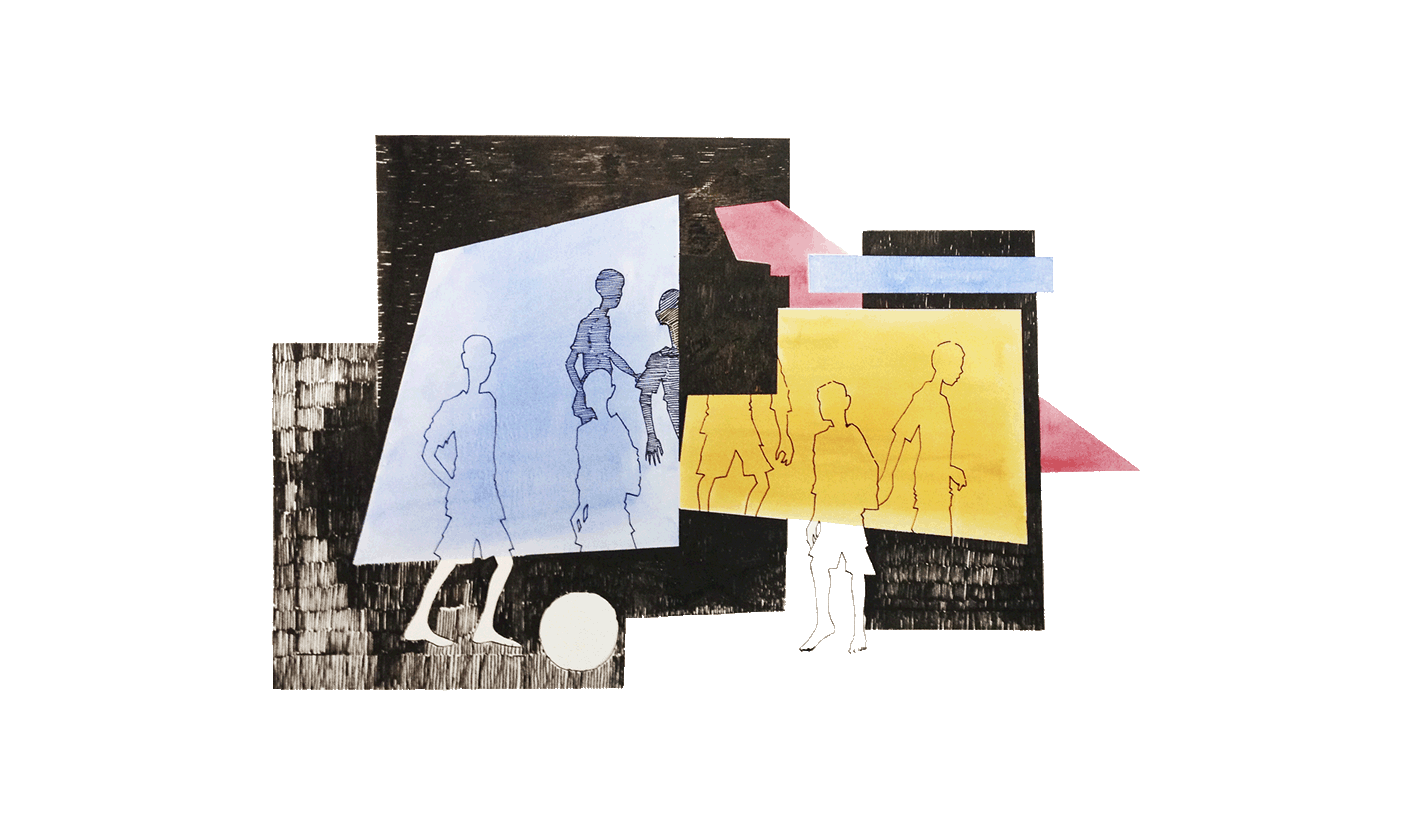
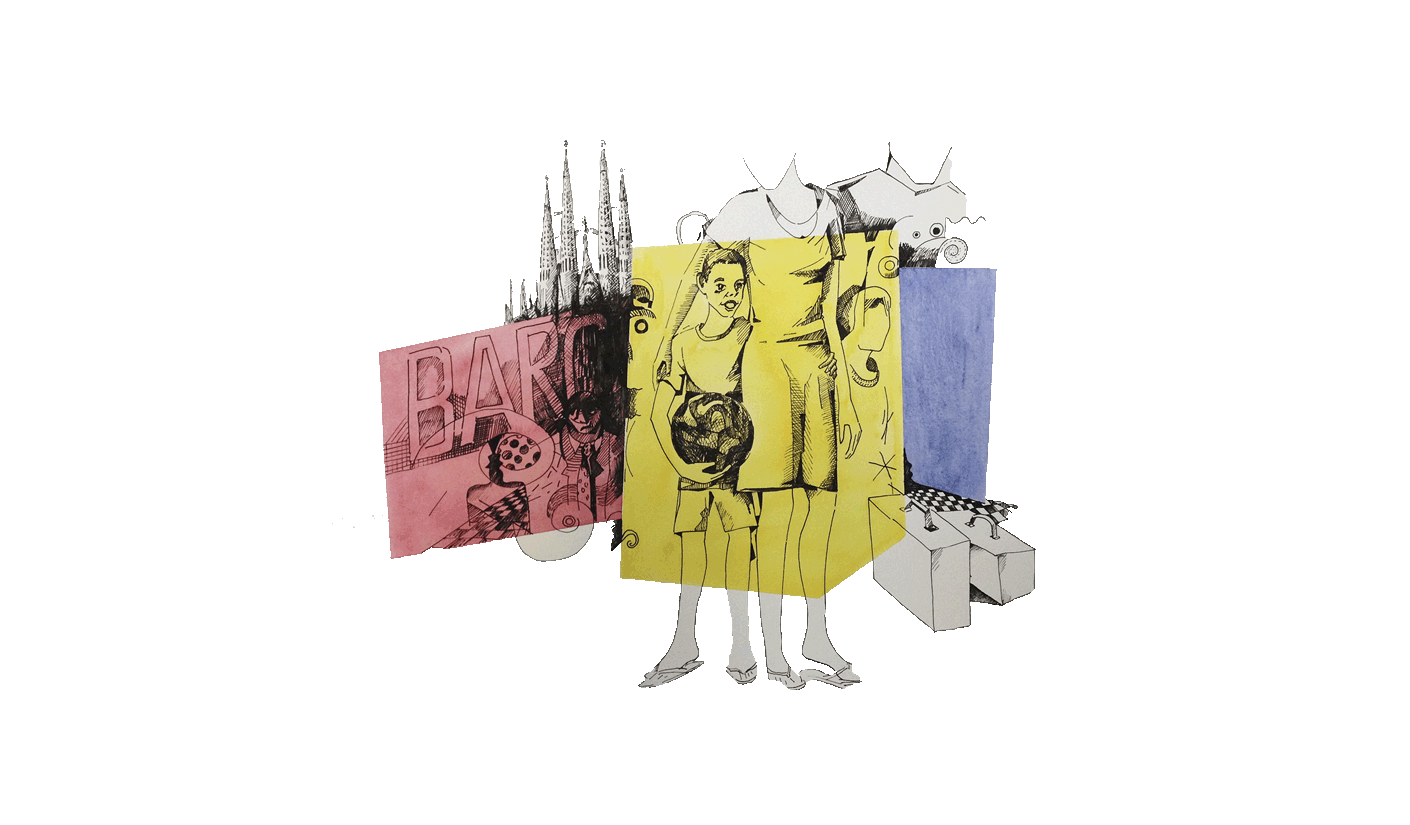
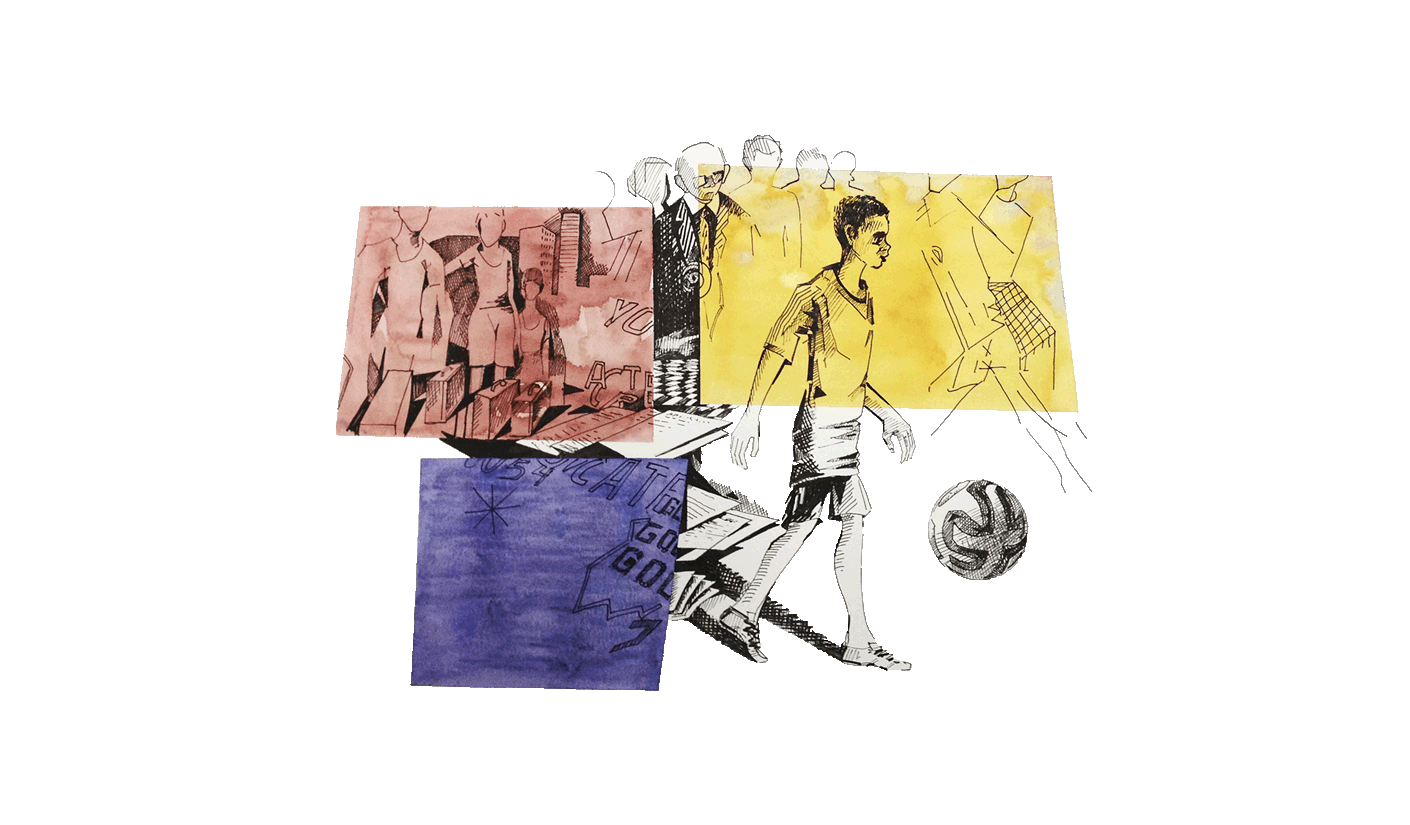
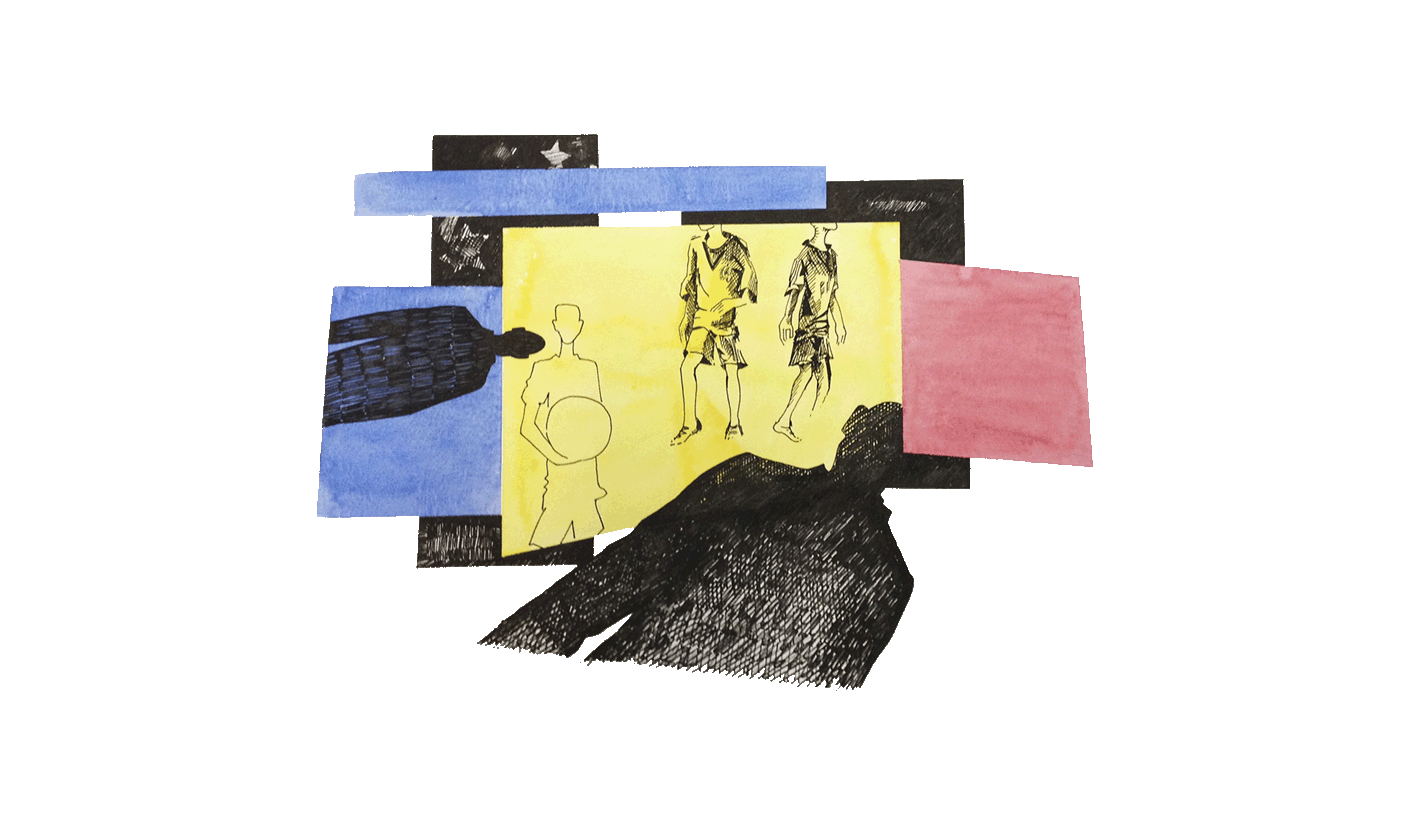
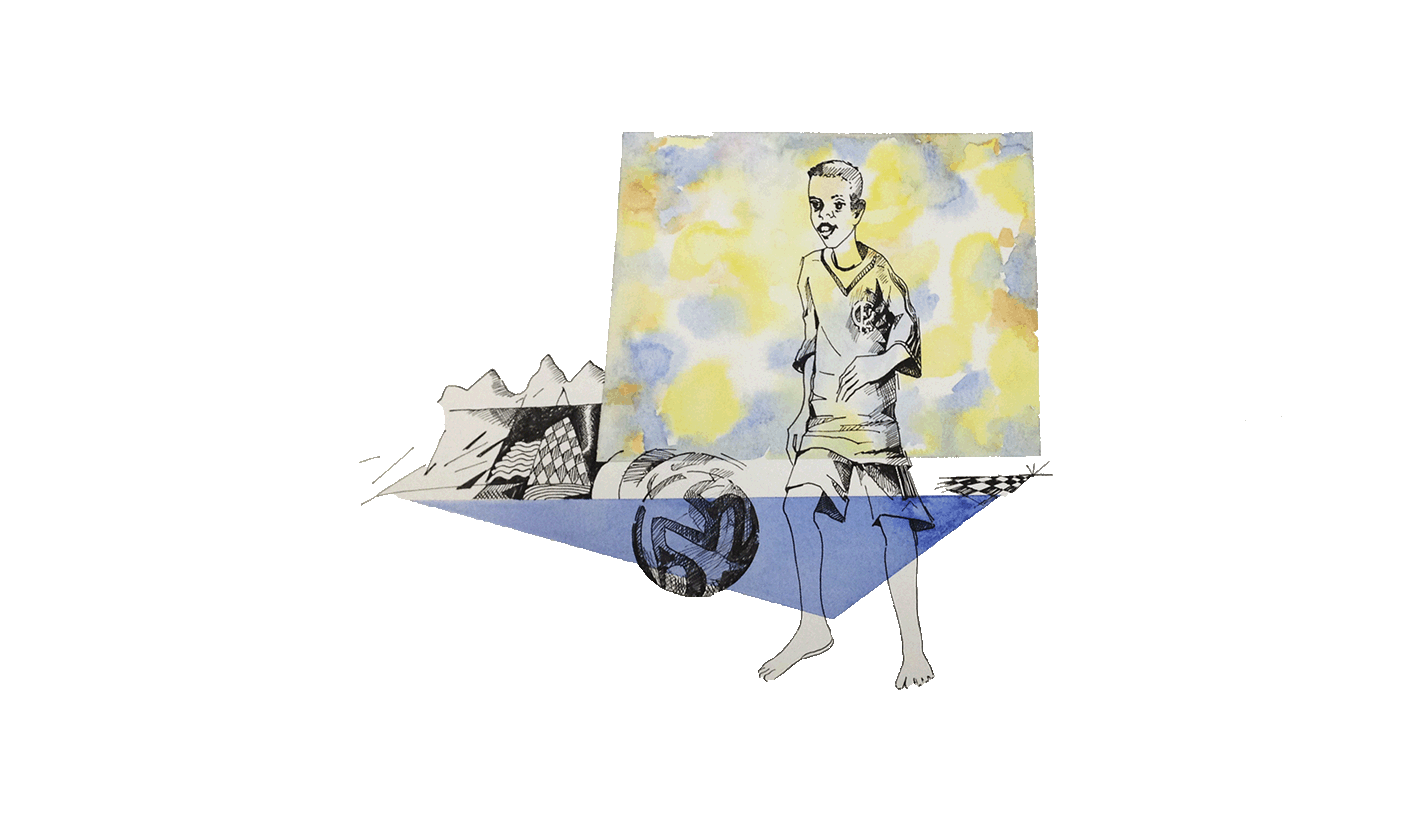
Lembrava-me vagamente do Cassiano, já que algo havia lido na imprensa brasileira. Mas nada se compara a uma história bem contada, tanto no formato quando na sensibilidade da narrativa. Emocionei-me com o Francisco. Torci para que a “a paixão impossível” de Valentine fosse, ao fim, possível. Cassianos, Valentines e Franciscos existem aos montes e é super importante mostrar esse outro lado do futebol, em que sonhos e necessidades são o combustível para uma travessia geralmente dura e cheia de desafios de “gente grande” impostos a crianças. Por acaso li a reportagem em 7 de abril, data em que, no Brasil, comemora-se o dia do jornalista. Trabalhos como este mostram que há esperança neste nosso ofício tão “castigado” nos últimos anos. Parabéns!